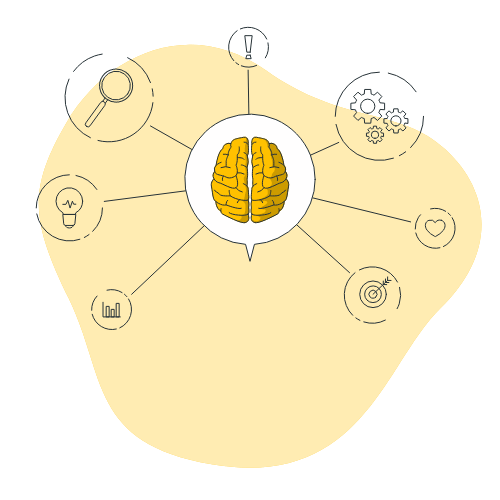Chess requires players to make important decisions under time constraints, which strengthens their decision-making abilities. Each move involves evaluating multiple options and anticipating consequences. Regular practice in decision-making during games makes this process more intuitive over time. Players learn to apply these skills in real-life choices.
Chess demands sustained attention because each move can influence the outcome of the game. Players must consider all pieces and possible moves, which trains them to resist distractions and maintain focus. Over longer games, they build a habit of concentrating for extended periods. This improved concentration translates into better focus in academic and everyday activities.
Every move in chess has both immediate and long-term consequences, so players must think logically about their actions. They weigh the outcomes of different options and choose moves based on reasoned analysis rather than impulse. This habit of structured reasoning helps players develop strong problem-solving skills. Students practicing chess apply similar logical thinking to academic challenges.
Chess puzzles and positions often share underlying strategic motifs that repeat across games. By solving puzzles and playing regularly, players train themselves to recognize these patterns quickly. This heightened pattern recognition allows them to anticipate opponent moves and formulate better tactics. The ability to identify patterns also benefits learning in subjects like mathematics and science.
Chess encourages creative thinking by presenting complex situations that require original solutions. Players explore unconventional strategies and combinations of moves to overcome challenges on the board. This practice of generating innovative ideas during play expands their imagination. The creative problem-solving skills gained from chess can then be applied to other areas of life.
Chess players strengthen memory by learning and recalling various opening sequences, tactics, and game patterns. The game involves memorizing moves that have been developed over centuries, as well as remembering previous games and strategies. Regular practice requires continuously updating and retrieving this information from memory. This constant exercise of the mind improves both short-term and long-term memory capabilities.
In chess, players must visualize moves and calculate future positions without moving the pieces. This mental exercise of planning several moves ahead improves spatial reasoning and foresight. Predicting sequences of moves enhances their ability to simulate scenarios in their mind. Over time, this practice sharpens analytical thinking and strengthens mental visualization skills.
Chess rewards patience because careful analysis often leads to success. Players learn that hasty or impulsive moves can result in mistakes, teaching the value of taking time to consider options. As games and puzzles become more challenging, individuals naturally develop longer attention spans to solve them. These qualities of patience and sustained focus are valuable in academic learning and everyday problem-solving.
Playing chess involves managing complex and layered problems, which exercises advanced cognitive processes. Regularly engaging in chess challenges can contribute to improved intelligence and problem-solving abilities over time. The disciplined thinking structure required by the game strengthens overall mental capacity. Through consistent practice, players often experience growth in their general intellectual skills.
Chess inherently teaches strategic thinking because it is impossible to foresee every possible move. Players must develop long-term plans and adapt strategies beyond immediate calculations. Learning to evaluate positions and formulate a plan in chess translates to better planning and decision-making in life. This emphasis on strategy helps players learn to organize and execute multi-step objectives.
Chess players improve analytical skills by reviewing games to understand their mistakes and successes. By analyzing each move and its outcome, they learn to identify strengths and weaknesses in their play. This habit of critical self-assessment trains the brain to examine problems from multiple angles. Over time, the analysis done in chess builds strong reasoning and problem-solving abilities.
Chess can serve as a constructive outlet for stress by providing focused, engaging activity. Concentrating on the game allows players to temporarily set aside daily worries and immerse themselves in problem-solving. The sense of calm and achievement from playing chess can help reduce stress and anxiety. Over time, this disciplined focus contributes to better stress resilience and emotional control.

Making Chess Learning into a Brain Gym Exercise for Kids

